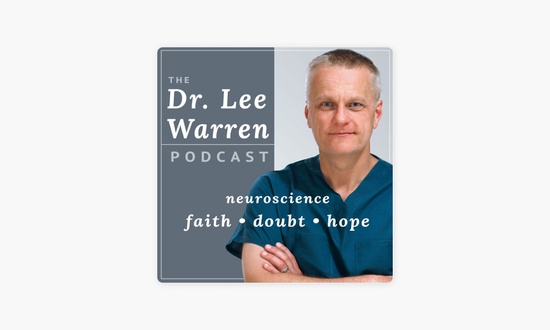I spent the last three years researching and writing on a biblical view of happiness. It was a lot of work, but also an eye-opening and happy-making experience as I examined the often-neglected truth that though the present world involves much evil and suffering, nonetheless God calls us to find pleasure and delight in him.
I’m happy to tell you that Happiness has now been released. My prayer is that God would use this book to draw readers to Jesus and help them gain a deeper understanding of the “good news of happiness” (Isaiah 52:7).
In the book’s introduction, I share how I first heard about Christ as a teenager, visiting a church youth group. Initially, Bible stories seemed to me like the Greek mythology and comics I loved. Then I read the Gospels, and I came to believe that Jesus was real, and superheroes are his shadows. I felt a profound happiness I’d never known.
My heartfelt gladness was the result of being born again, forgiven, and indwelt by God’s Spirit. This “joy of your salvation” (Psalm 51:12) stood in stark contrast to the emptiness I’d felt before hearing the gospel’s “good news of great joy” (Luke 2:10). My parents immediately noticed the change. (Mom liked it; Dad didn’t.)
I never considered the things I gave up to follow Christ as sacrifices—mainly because they hadn’t brought me real happiness. My worst days as a believer seemed better than my best days before knowing Christ. Jesus meant everything to me. I wasn’t attempting to be happy; I simply was happy.
Having known Jesus for more than four decades now, I realize that my story isn’t universal. Not everyone who comes to Christ experiences the dramatic increase in happiness that I did. Many do, but some see that happiness gradually fade.
Nothing is more annoying than reading a book by a naturally gleeful person who’s a cheerleader for happiness. I’ve known a few people with perpetually sunny dispositions, but my own nature is reflective and, at times, melancholic. I’ve experienced seasons of depression, both before and since coming to faith in Christ—some due to my personality type and emotional makeup (and perhaps genetics), some triggered by my long-term physical illness (insulin-dependent diabetes), and some the result of adverse circumstances.
I’m no stranger to unhappiness—in this world under the curse of evil and suffering, something would be wrong if I were. I’ve researched the Holocaust, walked through the Killing Fields of Cambodia, written at length on persecution and the problem of evil and suffering, and have walked alongside people who have experienced profound tragedy and grief. In short, I’d be the last person to write a breezy book on happiness that ignores life’s difficulties and denies the struggles of living in a fallen world. But by God’s grace, as the years have passed, I’ve experienced a more consistent heartfelt gladness and delight in Christ. That—not perpetual and unsustainable ecstasy—is what my book is about.
Rest assured, Happiness is not about pasting on a false smile in the midst of heartache. It’s about discovering a reasonable, attainable, and delightful happiness in Christ that transcends difficult circumstances. This vision is realistic because it’s built on God’s all-encompassing sovereignty, love, goodness, grace, gladness, and redemptive purposes in our lives.
Until Christ completely cures us and this world, our happiness will be punctuated by times of great sorrow. But that doesn’t mean we can’t be predominantly happy in Christ. Being happy as the norm rather than the exception is not wishful thinking. It’s based on solid facts: God secured our eternal happiness through a cross and an empty tomb. He is with us and in us right this moment. And he tells us to be happy in him.
“Positive thinking” says we can always be happy if we look on the bright side and don’t deal with negative things (such as sin, suffering, judgment, and Hell). I don’t believe that. Nor do I embrace the God-as-genie prosperity gospel preached by name-it-and-claim-it folks, which promises happiness through perpetual health, wealth, and success—if only we muster enough faith.
This health-and-wealth philosophy isn’t unique to Christians. In The Secret, Rhonda Byrne tells about Colin, a ten-year-old boy who was dismayed by long waits for rides at Disney World. He’d seen The Secret movie, so he focused on the thought that tomorrow he wouldn’t have to wait in line. What happened? Colin’s family was chosen to be Epcot’s “First Family” for the day, putting them first in every line.[i]
Of course, we should be grateful when God sends us fun surprises. But it’s one thing to be happy when such things occur and another to expect, demand, or lay claim to them. Our models should be people such as Amy Carmichael (1867–1951), who brought the gospel to countless children she rescued from temple prostitution in India. She experienced a great deal of physical suffering and never had a furlough in her fifty-five years as a missionary. Yet she wrote, “There is nothing dreary and doubtful about [life]. It is meant to be continually joyful. . . . We are called to a settled happiness in the Lord whose joy is our strength.”[ii]
This book is about the surprising “settled happiness” that God makes possible despite life’s difficulties. Rich and durable, this happiness is ours today because Christ is here; it’s ours tomorrow because Christ will be there; and it’s ours forever because he will never leave us. What I’m writing of is not a superficial “don’t worry, be happy” philosophy that ignores human suffering. The day hasn’t yet come when God will “wipe away every tear from [his children’s] eyes” (Revelation 21:4). But it will come. And this reality has breathtaking implications for our present happiness.
Continue reading the introduction to the book.
[i] Rhonda Byrne, The Secret (New York: Atria Books, 2006), 88.
[ii] Frank Houghton, Amy Carmichael of Dohnavur (Fort Washington, PA: CLC Publications, 1953), chapter 25.




